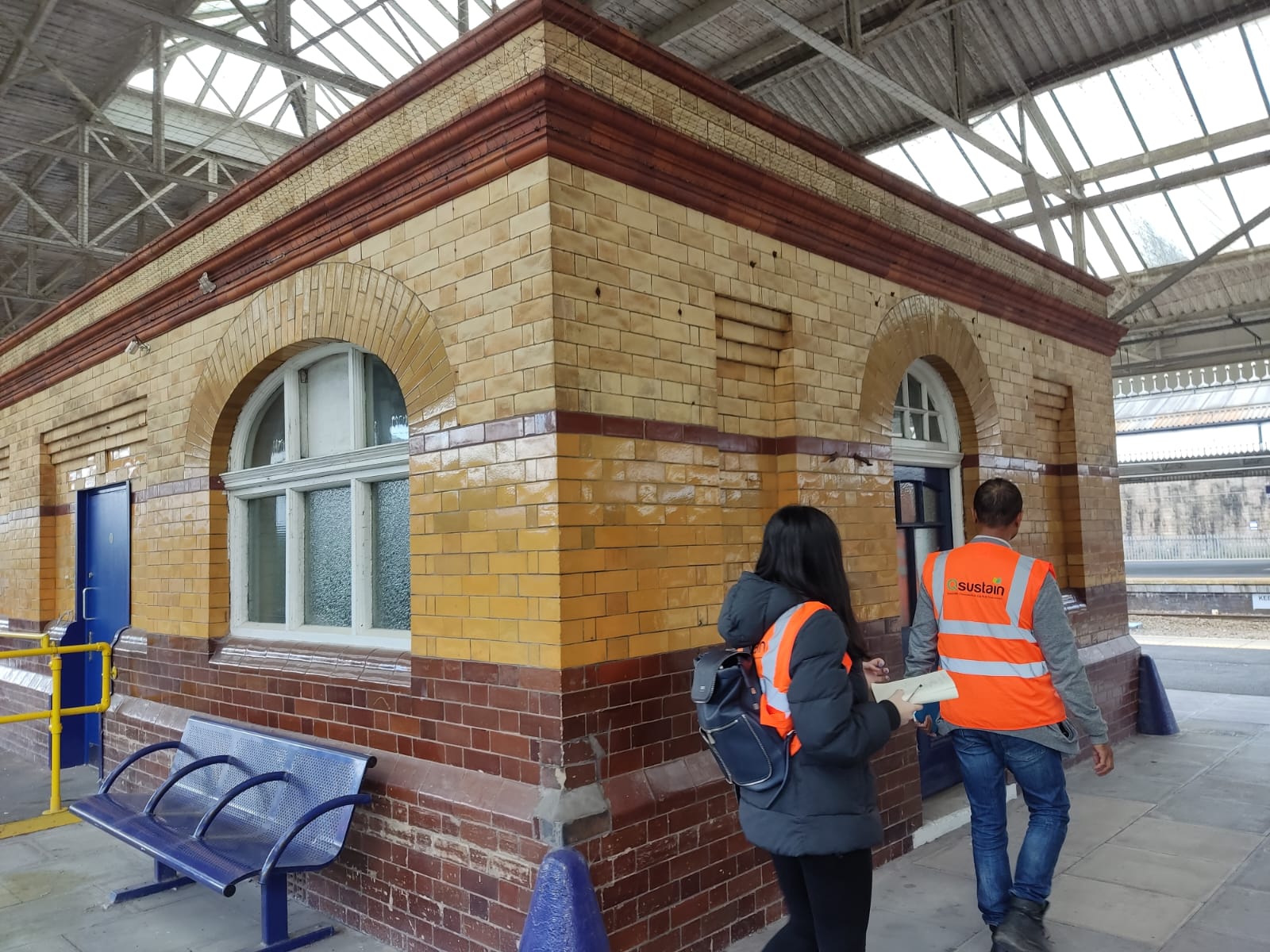
Creating Carbon-Neutral Railways – In Conversation with Q Sustain
13 October 2022
Q Sustain provide low carbon consultancy services for built environment projects, working with clients including Network Rail, Avanti and Northern Rail. They have been working with Avanti to provide low carbon research on 14 UK stations and recently completed a carbon neutral feasibility (CNF) study of Stoke-On-Trent, which identified the station as a carbon-neutral candidate, and researched the carbon-cutting tactics that could be employed by Buxton station.
Decarbonising railway stations will have a positive impact on the UK’s net zero journey since the likes of Network Rail became the first railway company in the world to commit to cutting emissions which align with the 1.5C global warming target outlined in the Paris Agreement.
“There is no definite carbon-cutting solution for every station as it depends on capacity and the resources already in place,” said Azhar Quaiyoom, director of Q Sustain. “However, it’s possible to build a blueprint with common solutions which is adaptable to the stations we’re working on.”
As an example, Q Sustain facilitated and managed a platform lighting renewal scheme at Birmingham New Street station, replacing 891 fittings across 12 platforms with LED lights, using a different approach by retrofitting the existing fittings to minimise waste and whole life carbon. The ways in which lighting is used in train stations is also important, with dimming and turning-off lights during quiet and off-peak hours having a sizeable impact on a station’s overall emissions.
Energy efficiency plays a vital role, with close control ventilation, renewable energy supplies, battery storage, high efficiency boilers and heat pumps all contributing to low emission stations.


Q Sustain’s CNF study for Stoke-On-Trent Station unveiled a large ground-based car park footprint which was well-suited to a solar PV car port. According to Quaiyoom, the study revealed potential to “generate sufficient power to provide all demand for the station with export potential and the additional functionality of providing power for new electric vehicle (EV) charging.”
Upon completing their CNF study, Q Sustain laid-out their proposed station amendments designed to cut emissions. A variety of solar PV roofing, battery storage, layout and design options were then detailed to Network Rail, Stoke-On-Trent Council and Avanti West Coast, with output potential highlighted upon completion of the project.
The scheme is designed to be funded via a third party Power Purchase Agreement (PPA) agreement, in which the third party buy and install plant equipment and charge the rail company a unit rate for every watt produced by the solar PV at Stoke-On-Trent Station. With this type of agreement, the investors can obtain a return on investment and is able to make their money back within six to eight years.
Infrastructure is key when considering the types of low carbon solutions a railway station is able to take on. As an example, the roof of a station may be unsuitable for solar PV due to weak structure or a lack of space to make the project viable and sourcing solar PV can also have its complexities depending on where particular materials originate from.
For Q Sustain a huge challenge is the lack of available skilled workers and suppliers in this space, which impacts the type and number of projects Qsustain are able to take on. On average, each project requires 10-50 skilled workers for effective delivery. Upskilling in the green sector is essential to meet demand for low carbon projects and emission-cutting programmes.
We have been working with Q Sustain to identify funding opportunities, allowing the company to expand their business and take on further projects, as well as connecting them partners to source training and skilled workers for their projects. We also offer our members support to increase company profile by creating searchable profile on our online Marketplace.
Green Economy is a membership organisation that provide net zero products and services. Profile your business or find a local supplier for your green project using our Marketplace.